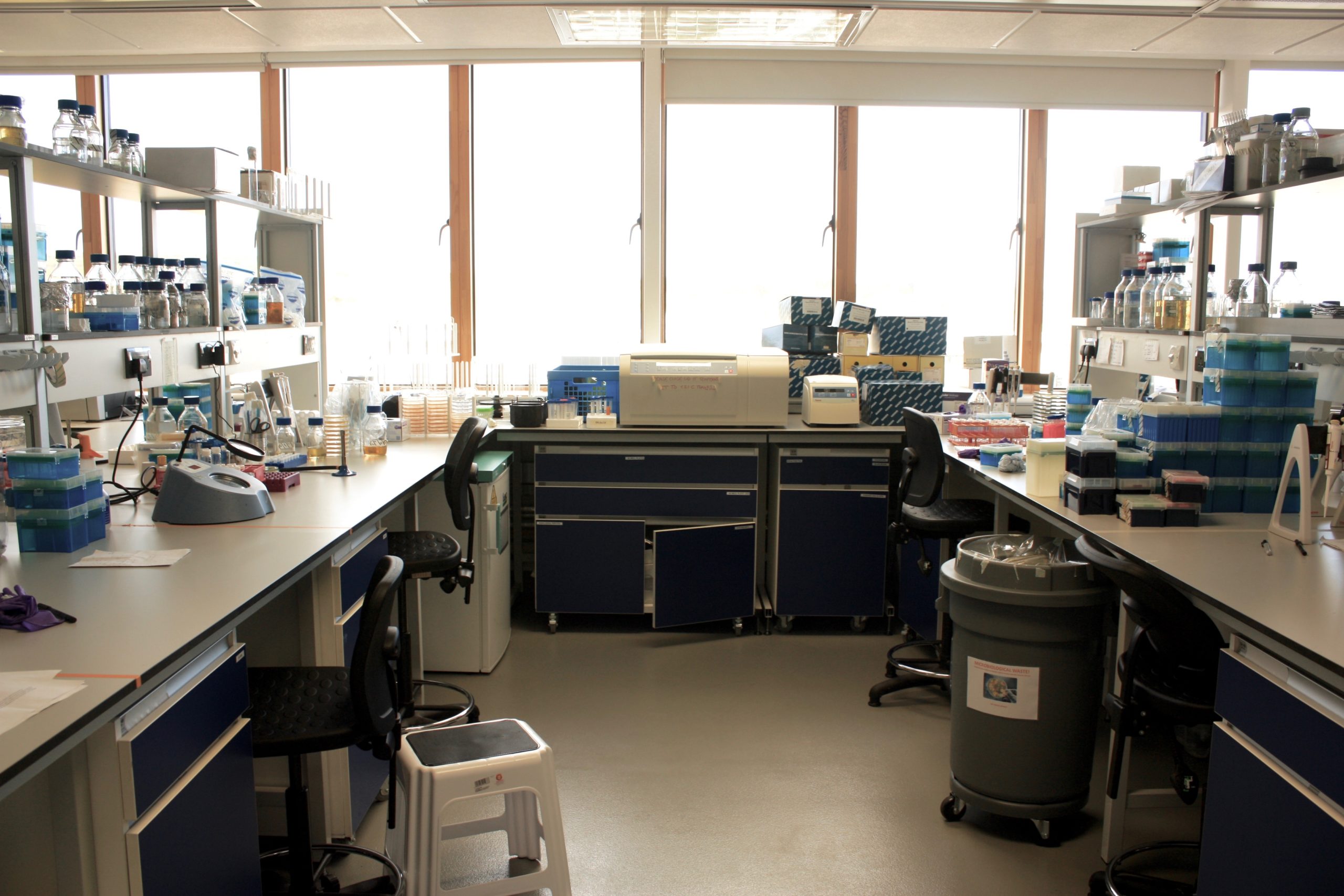Westra Lab
Westra Lab

The Westra lab is based in the Environment and Sustainability Institute at the University of Exeter’s Cornwall Campus. The Westra lab works closely together with the van Houte lab and shares lab space and facilities in the ESI with the van Houte lab, the School of Mines, and the European Centre for Environment and Human Health.
The spread of antimicrobial resistance (AMR) is a slow-moving pandemic, identified by the WHO as one of the top-10 threats facing humanity. Viruses that infect bacteria (bacteriophage; phage) are a potent therapeutic modality against drug-resistant pathogens. The Westra lab studies fundamental and applied aspects of bacteria-phage and phage-phage interactions, using a range of bacterial pathogen and non-pathogen model systems.
Ecological drivers of defence evolution
A key area of research in the Westra lab concerns the evolutionary ecology of phage resistance mechanisms; previous work from our lab revealed that bacteria use different defence strategies in different environments. For example, the opportunistic pathogen Pseudomonas aeruginosa rapidly acquires CRISPR-Cas immunity in the presence of certain antibiotics, but not in their absence, which may impact antibiotics-phage combination treatments. We also demonstrated that phage defences have important knock-on effects for bacteria-phage coevolution, pathogen virulence, and the spread of AMR.
Defence-defence interactions
Although bacteria typically encode multiple immune systems, it remained unclear how these systems interact. Edze Westra is the lead PI of a £4.5M BBSRC sLoLa grant to study the “multi-layered immune system” of bacteria. Under this project banner, a consortium of 12 UK-based scientists across 7 institutions explores which defences co-occur, which interact synergistically, what causes synergy, how the activation of different defences is orchestrated and how they shape bacteria-MGE dynamics. Our network will ensure that the UK will be at the forefront in this area of research, which is of key strategic importance for UK healthcare, industry and biotech. More detailed information on this project can be found here.
Defence-community interactions
The interactions between bacterial defences and phage are often studied using experimental models of a single bacterial strain interacting with a single phage. However, in nature, bacteria are embedded in complex microbial communities that are composed of many different species of bacteria and many different phages (and other mobile genetic elements). We previously discovered that the microbial community context of bacteria-phage interactions will shape the evolution of anti-phage defence. More recently, we have explored the inverse, namely how interactions between phages and these different phage resistance mechanisms affect the wider microbial community in which they are embedded. In collaboration with Georgia Tech and funded through a BBSRC-NSF grant, we apply a combination of theoretical and experimental approaches to tease apart the molecular and evolutionary mechanisms that underpin these bi-directional interactions between bacterial defences and the microbial community.
Many phages can switch between lytic replication, where they lyse bacteria to release new phage particles, and lysogenic replication, where they become dormant and wait for future opportunities to reactivate. It was recently discovered that some phage use communication systems to control the lysis/lysogeny switch. Essentially, these viruses employ between-cell quorum sensing to communicate host availability, which enables them to reactivate en masse whenever uninfected bacteria are available. The Westra lab aims to understand the principles and mechanisms governing viral communication, what fitness advantages it employs on phages, what drives the diversification of communication systems, and how widespread phage communication is. This work will provide the a framework to understand the evolution of viral communication and may guide future explorations of conceptually similar mechanisms in eukaryotic viruses.
The Westra Lab is grateful for receiving funding from the following agencies:


